Phonics Worksheets Activities With Answers for Ages 3-6
20 filtered results
-
From - To
Explore our engaging phonics worksheets tailored for children aged 3-6! Designed to enhance early literacy skills, these fun activities help young learners recognize letter sounds, improve pronunciation, and develop essential reading abilities. Each worksheet comes with an answer key, making it easy for parents and educators to guide children through phonetic exercises confidently. Our phonics activities incorporate colorful visuals and interactive tasks to keep little ones motivated and excited about learning. Whether at home or in the classroom, these resources are perfect for fostering a strong foundation in reading and language. Start your child’s phonetic adventure today!


Rhyming Words: Assessment Worksheet
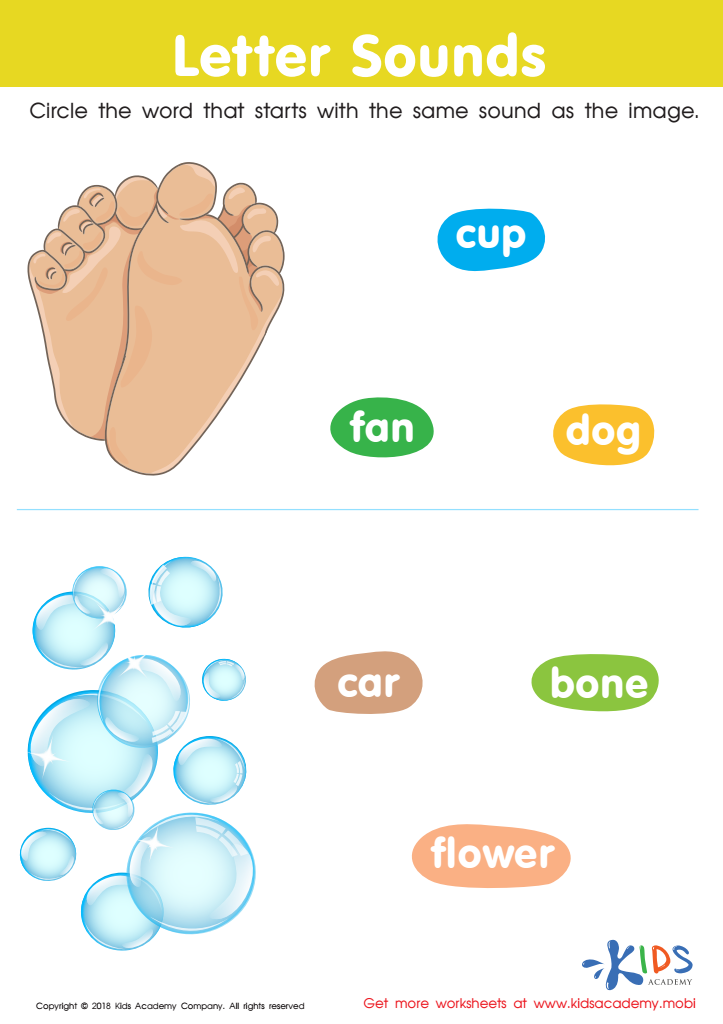

letter sounds Worksheet


Let's Check Long Vowels: Assessment Worksheet
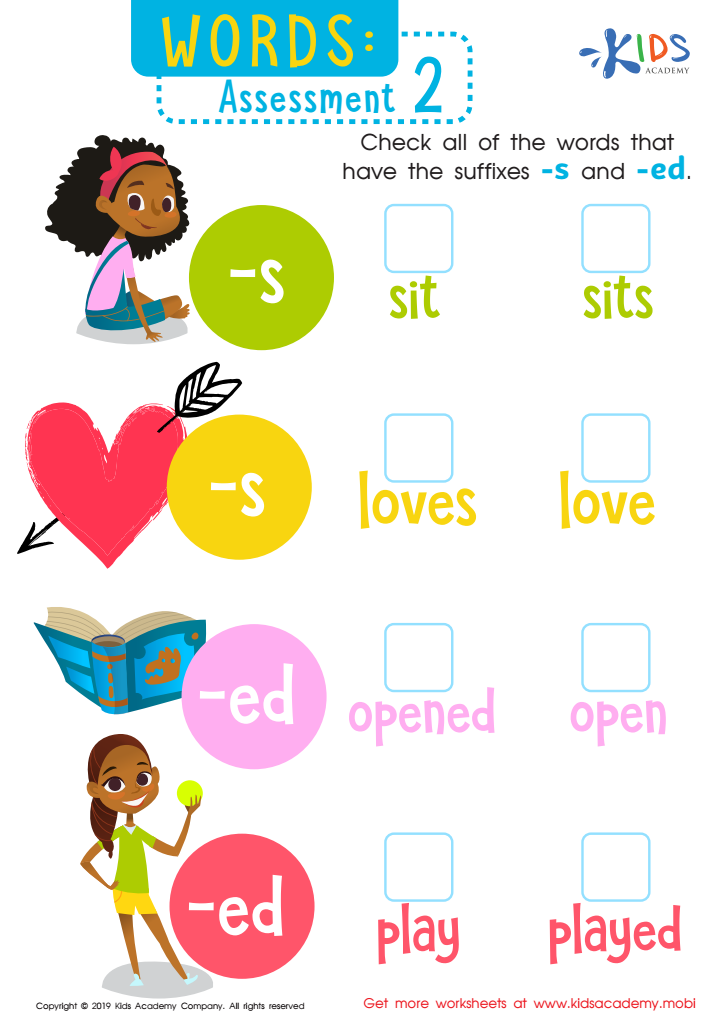

Words: Assessment 2 Worksheet
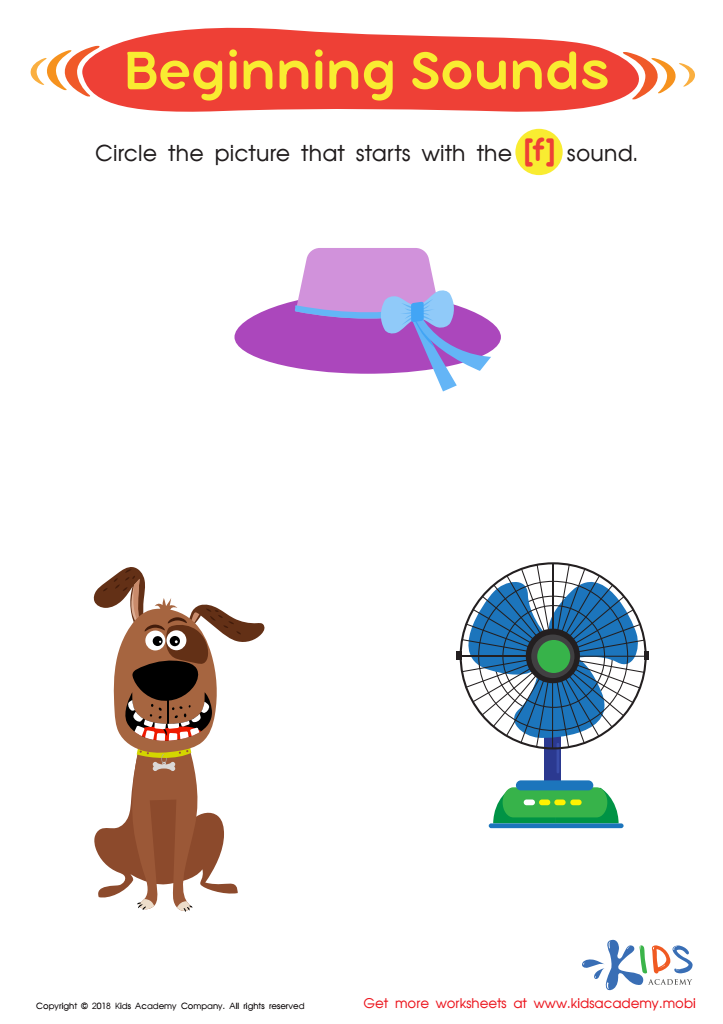

Beginning Sounds Assessment Printable
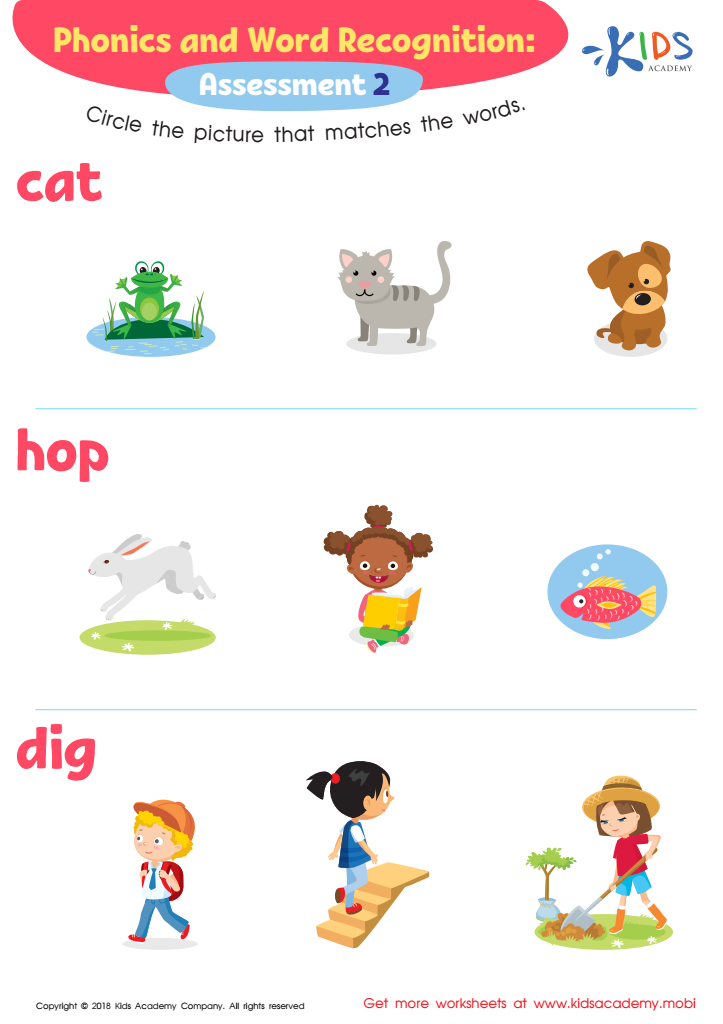

Phonological Awareness: Assessment 2 ELA Worksheet


Vowel and Consonant Sounds: Assessment Worksheet
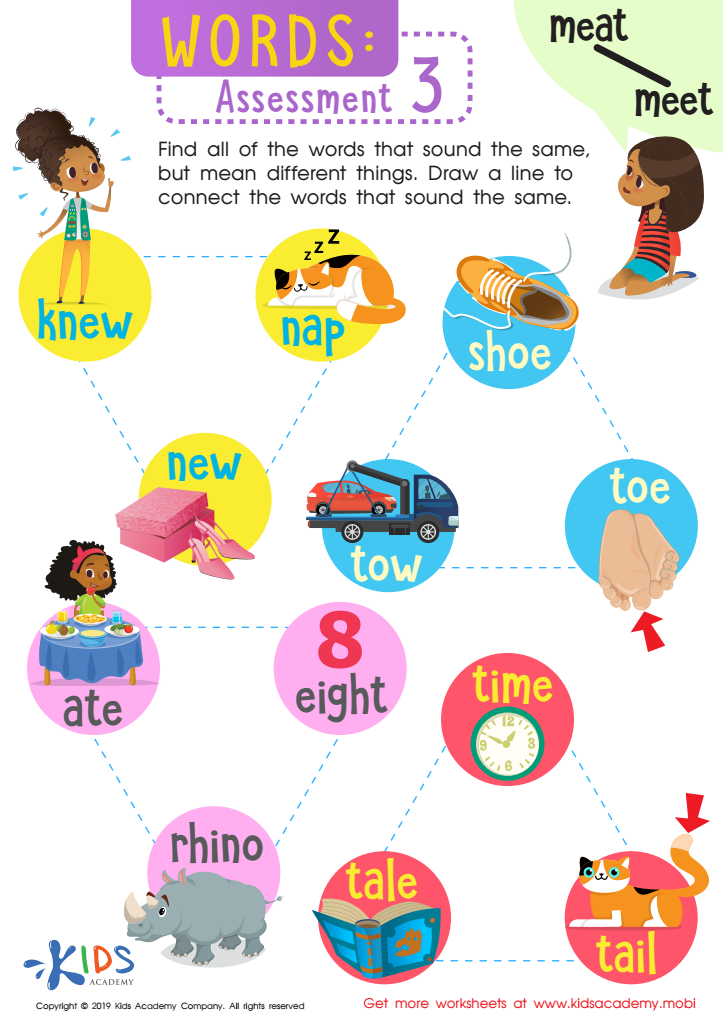

Words: Asessment 3 Worksheet
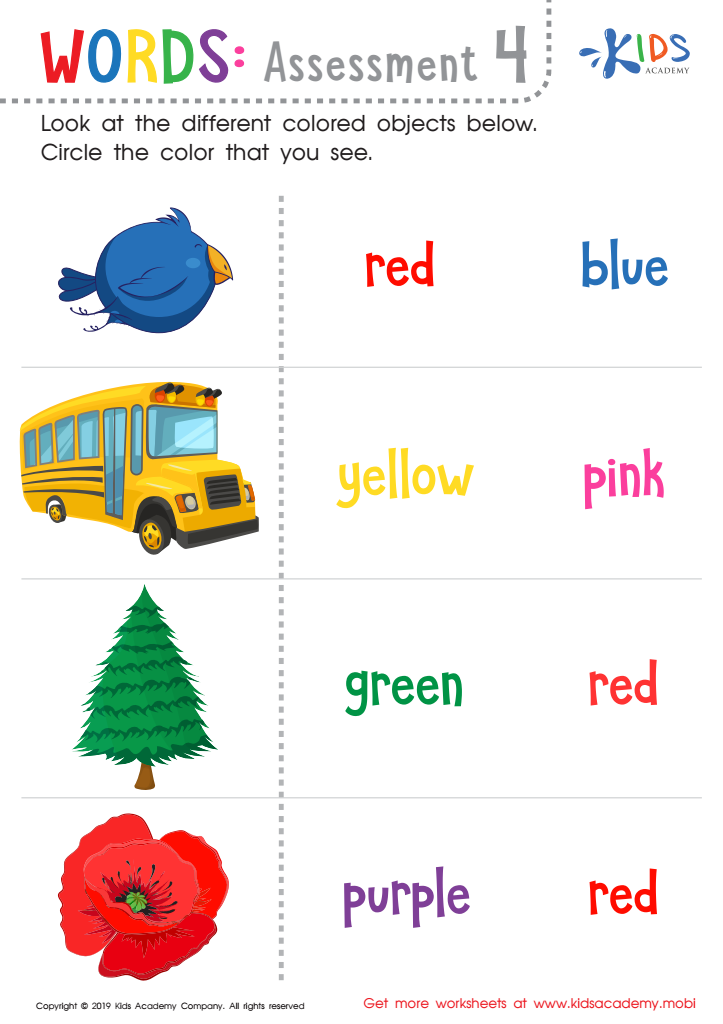

Words: Assessment 4 Worksheet
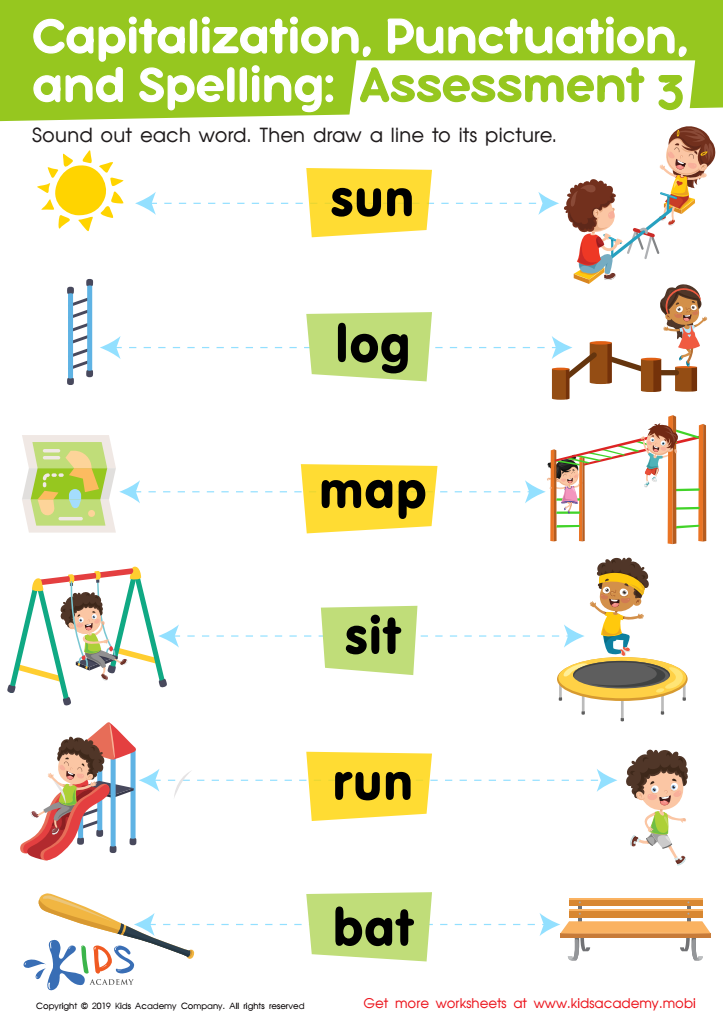

Capitalization. Punctuation. Spelling. Assessment 3 Worksheet
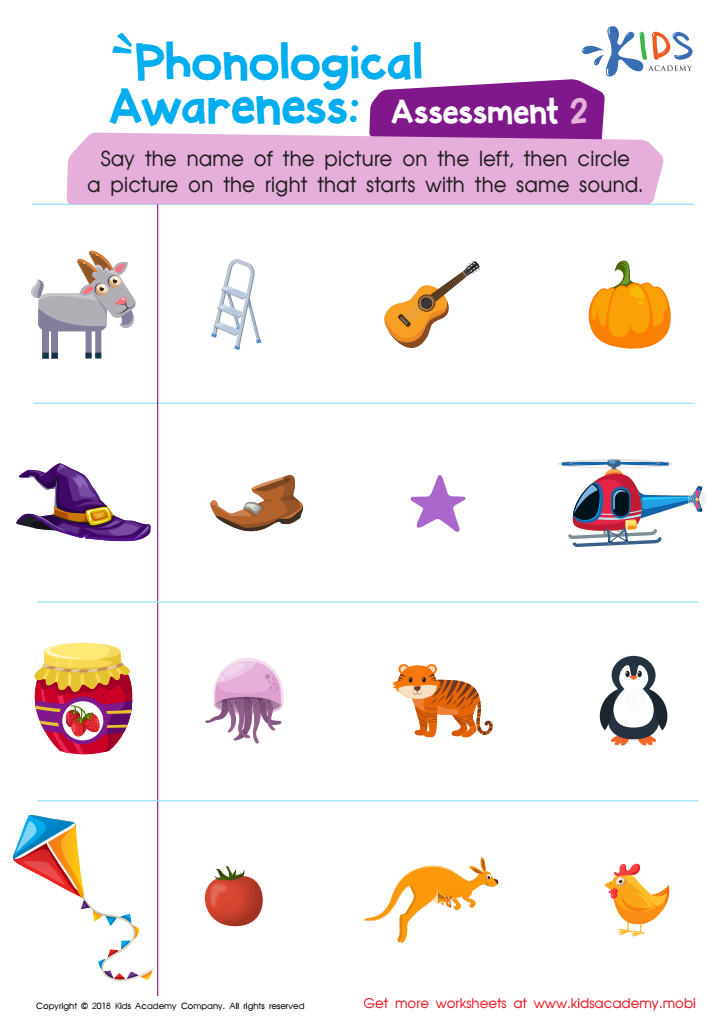

Phonological Awareness: Assessment 2 Worksheet
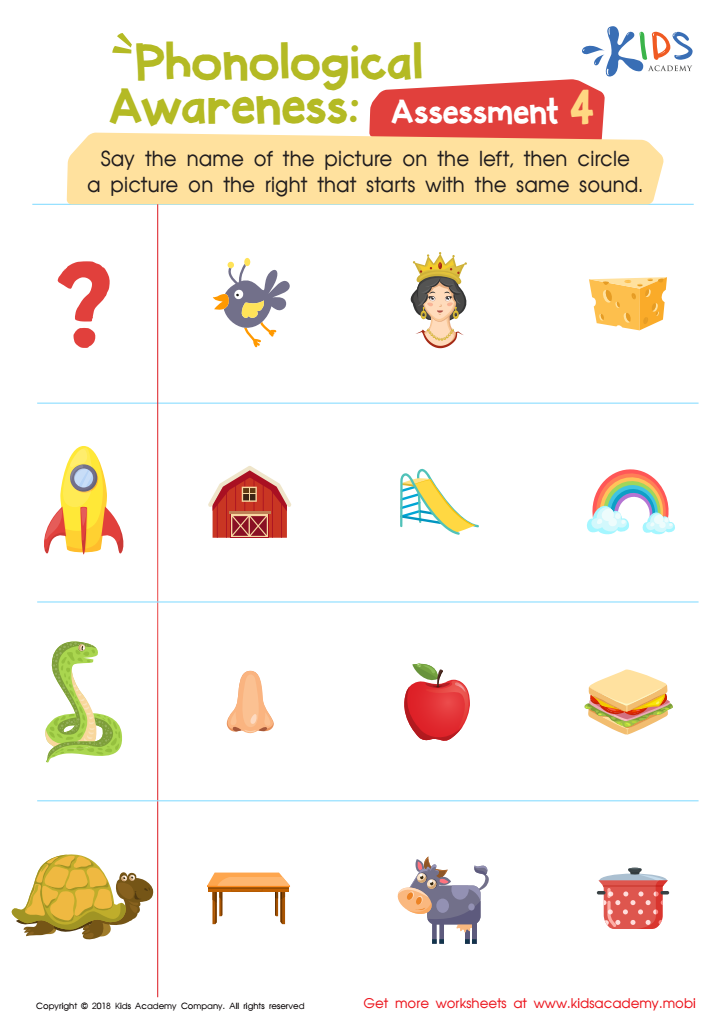

Phonological Awareness: Assessment 4 Worksheet
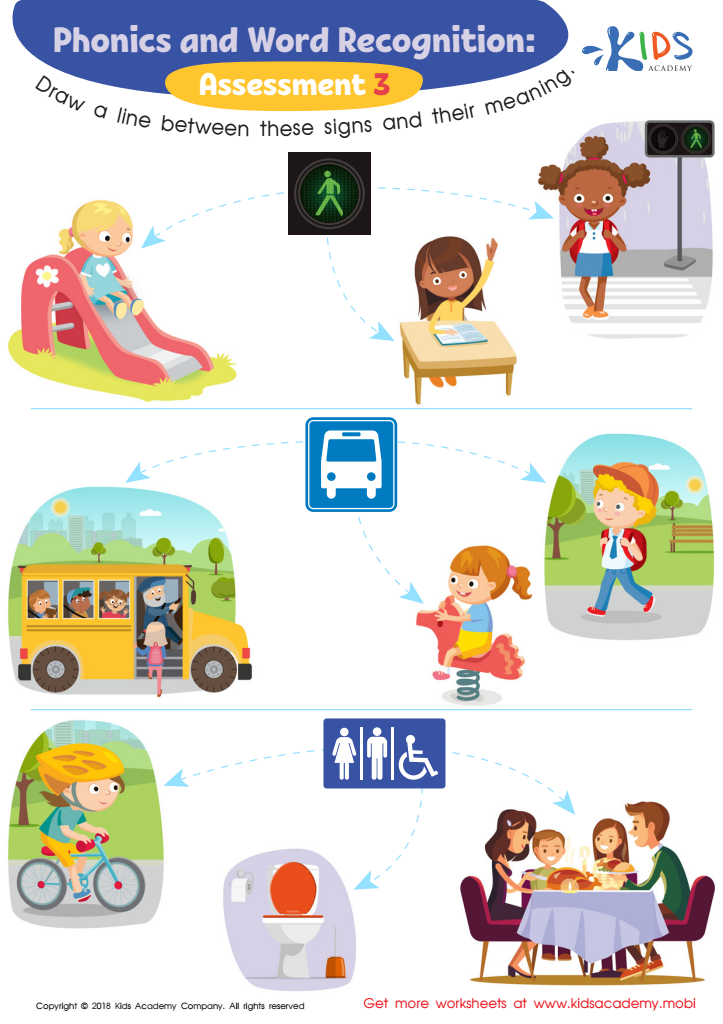

Phonological Awareness: Assessment 3 ELA Worksheet
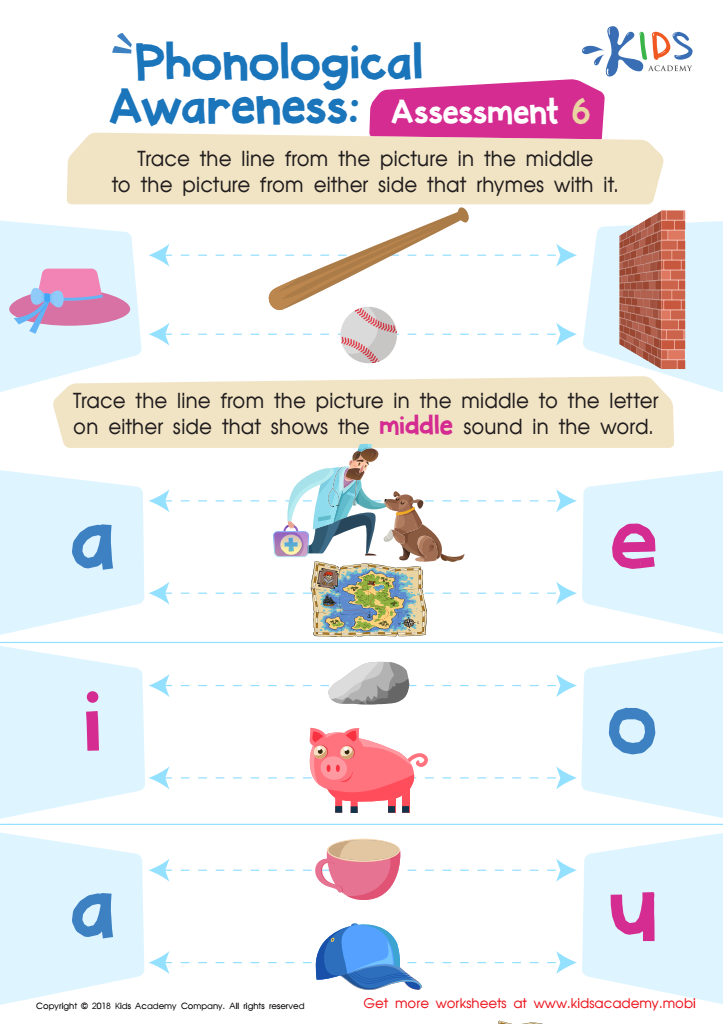

Phonological Awareness: Assessment 6 Worksheet
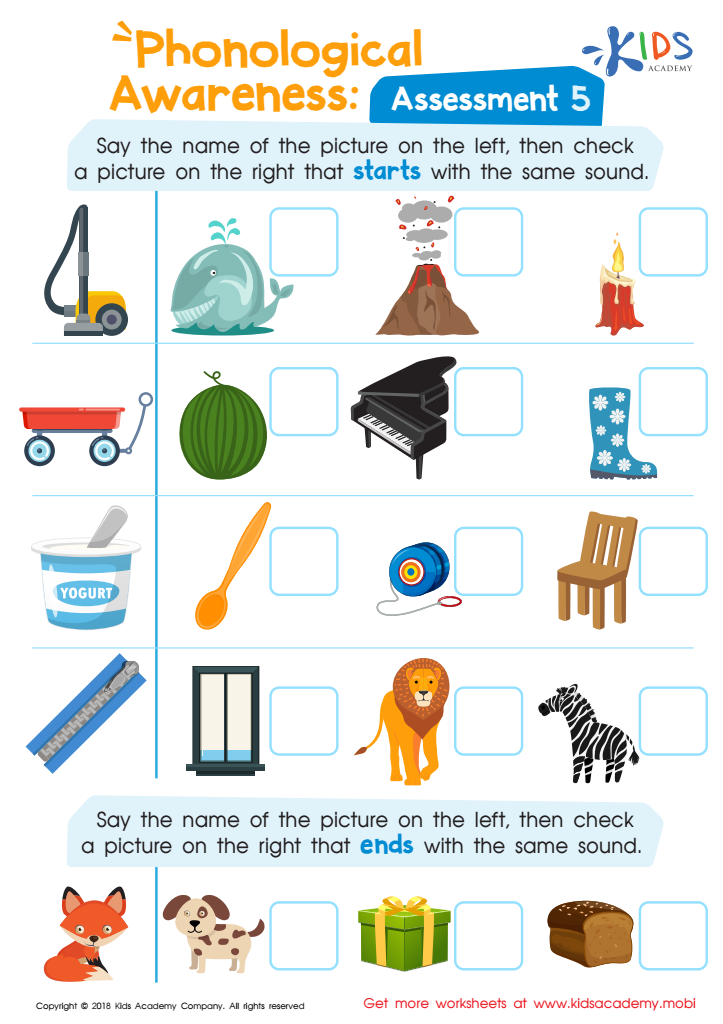

Phonological Awareness: Assessment 5 Worksheet


Long and Short Vowel Sentences: Assessment Worksheet
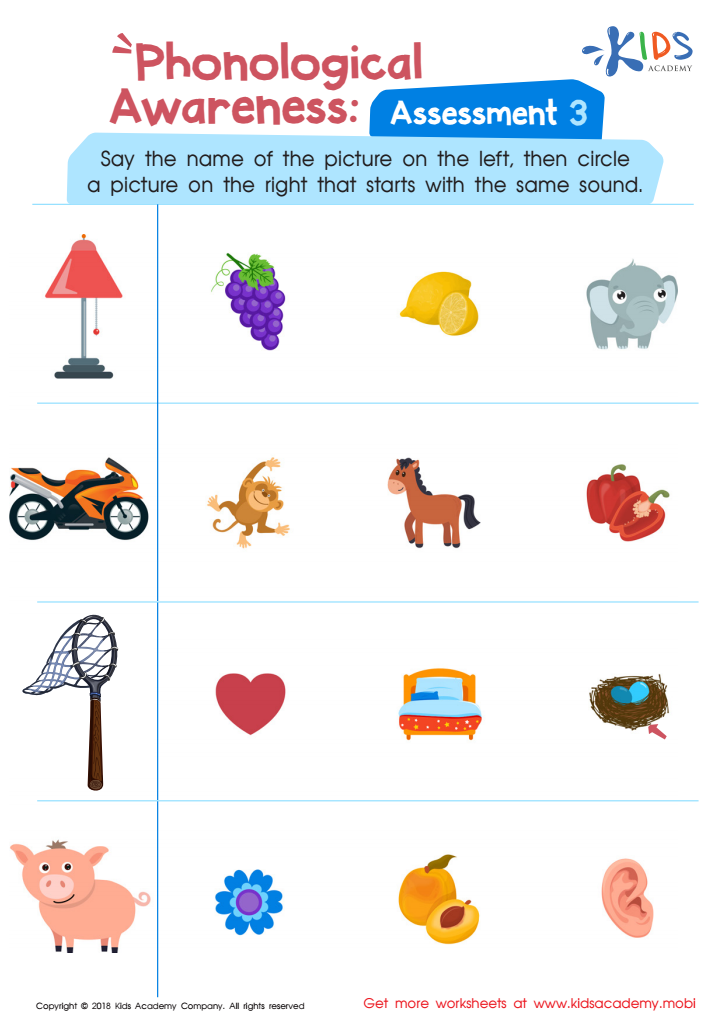

Phonological Awareness: Assessment 3 Worksheet
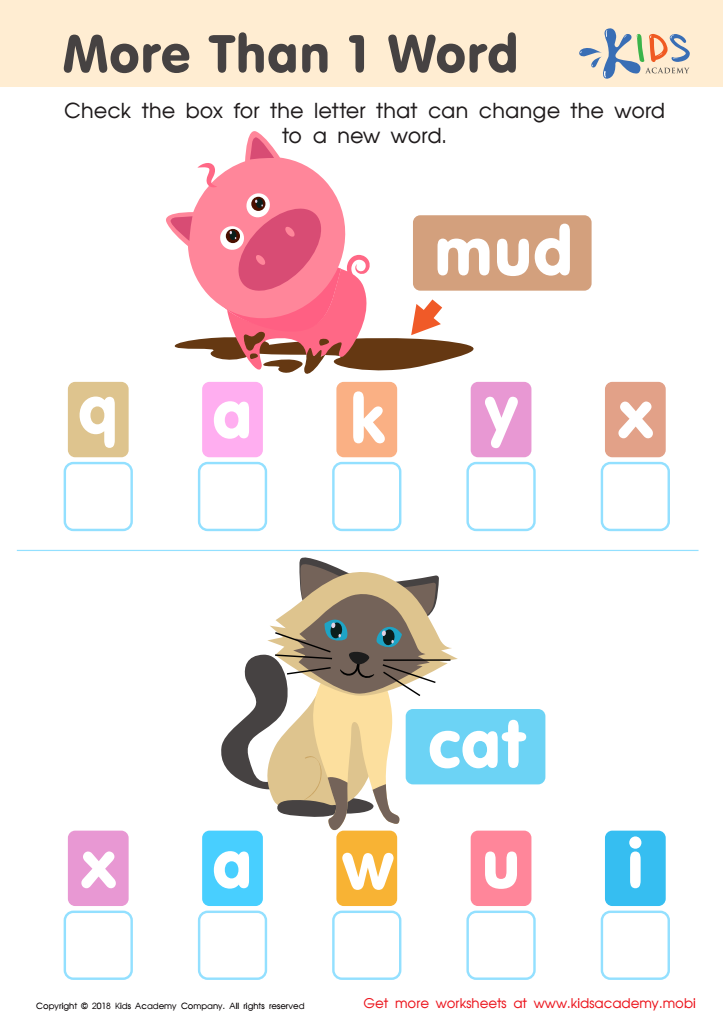

More than 1 word Worksheet


Phonological Awareness: Assessment 1 Worksheet


Phonics and Word Recognition: Assessment 1 ELA Worksheet
Phonics activities for ages 3-6 are crucial for developing early literacy skills, and parents and teachers should prioritize them for several reasons. Firstly, phonics is foundational for reading; it teaches children the relationship between letters and sounds, enabling them to decode words. Engaging in phonics activities promotes phonemic awareness, which is the ability to recognize and manipulate sounds in words—essential for successful reading.
Additionally, phonics activities cater to various learning styles through interactive games, songs, and hands-on exercises, making learning fun and memorable. By incorporating activities with answers, adults can provide immediate feedback, reinforcing concepts and boosting children's confidence. This instant clarification helps address misunderstandings right away, ensuring children build a solid groundwork in literacy.
Moreover, systematic phonics instruction can prevent future reading difficulties, fostering a positive attitude towards reading and learning. As children gain confidence in their phonetic skills, they become more enthusiastic readers, which also benefits their overall academic performance. In summary, phonics activities with answers are essential tools that help foster early literacy skills, support various learning styles, provide immediate feedback, prevent future challenges, and cultivate a lifelong love for reading. Engaging in these activities not only benefits children but strengthens the parent-teacher partnership in promoting literacy.
 Assign to My Students
Assign to My Students




















